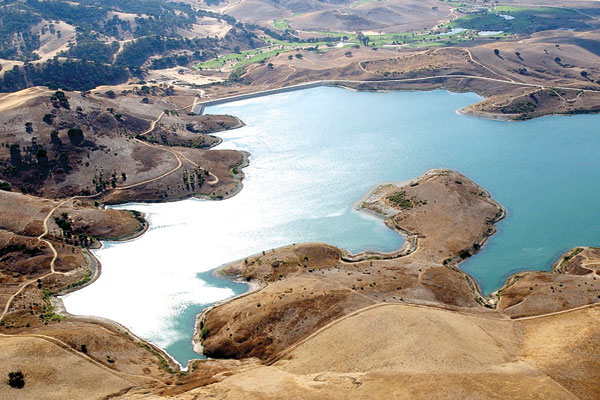
Hollister resident Mark Guinasso said he spent a day and a half
scrubbing his 20-foot sportboat before he towed it to Coyote
Reservoir last weekend for a fishing trip. But when he got to the
lake and a boat inspection crew found out he was from San Benito
County, he was told to turn around and go home.
Hollister resident Mark Guinasso said he spent a day and a half scrubbing his 20-foot sportboat before he towed it to Coyote Reservoir last weekend for a fishing trip. But when he got to the lake and a boat inspection crew found out he was from San Benito County, he was told to turn around and go home.
That’s because, as of May 23, boats registered in San Benito County and counties south of the Tehachapi Mountains are no longer welcome at bodies of water in Santa Clara County.
This indefinite ban was made by the Santa Clara County Water District to combat the potential spread of Zebra Mussels – an invasive and highly destructive species of mollusk that was found in the San Justo Reservoir in January.
“I’ve never had my boat at San Justo Reservoir, in fact it’s too big for it even to be let on that reservoir,” Guinasso said. “I’ve been fishing Santa Clara County lakes for 25 years. Now I’m being black flagged for the county I live in.”
Inspection stations have been set up at the entrances to all the county’s reservoirs and all boats will be checked for signs of the fingernail-size creature, Santa Clara County Water District Spokeswoman Susan Siravo said.
But even boats that pass inspection with flying colors will be denied entrance if they are registered in San Benito County.
“The decision was made to be as cautious as possible when it came to the Zebra Mussel,” Siravo said. “The water district and the county are trying to be as courteous as possible to boat owners while keeping the drinking water safe.”
The zebra mussel is one of the most reproductive animal species in the world, with each female able to produce up to 50,000 eggs per year. The species is native to Russia and thought to have reached the United States in the bilge water of a Russian cargo ship. The animal is known to grow inside pipes and water pumps, where they clog and usually destroy the water system.
Zebra mussels and their close relative, the quagga mussel, have caused billions of dollars in damage across the United States and have put California water officials on edge since their discovery in San Benito County five months ago.
“We’re focused on prevention,” Siravo said. “This is a highly destructive species, and the main purpose of the water board is to protect the county’s drinking water.”









